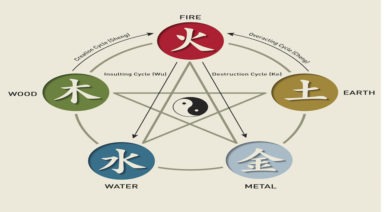Soul Retrieval: The Shamanic Nature Of The Soul

You don’t have a soul. You are a soul. You have a body.
::~ C.S. Lewis
The shaman’s toolbox is a personal and intimate gathering of powers. Some shamans learned through direct experience, others gleaned through master teachers, and still, others are simply gifted in the thrall of journeying to the depths of the invisible realms.
A few tools are so foundational, nearly every shaman utilizes them. Soul retrieval is one such tool. Not only is it universally effective, but it’s also the pervasive root cause of illness overlooked by many in the medical field.
The shaman performs soul retrievals, which are the result of soul loss. The basic idea is this: as traumas occur, little pieces of us take flight or run away. This is called soul loss. A soul retrieval gathers the soul’s “parts” and ushers them home.
Let’s break this down a few ways so we can understand why this spiritual illness is so damaging.
Navigating Soul Loss
The soul is our most basic life force. As soon as the soul leaves, the body dies. Anyone who has been with a loved one at the moment of passing can tell you once the soul departs, the person looks different, empty even.
Our soul is multi-faceted and complicated, to say the least. Not only does it venture through lifetimes, but it may even leave our body occasionally and visit other places. Shamanic journeying, astral projection, and remote viewing are examples of the soul taking an escapade, but not fully departing the physical body.
The soul can explore realms and come back. In a soul loss, however, parts of it venture off and stay gone until we come lookin’.
Soul loss occurs through a number of ways and for a number of reasons — from physical or sexual abuse to traumatic situations, or even just a bad fight. No one knows with certainty why a soul aspect decides to depart, but it’s a common occurrence and one rarely addressed in our modern society.
Soul loss cannot be prevented. It’s simply part of the package in this human condition, and one that can be normalized so it doesn’t sound as startling as the name suggests.
Shamans look for hints that soul loss has occurred. When they find clues, soul retrieval is a next step to restoration for the client.
Here are some red flags that may suggest soul retrieval needs to take place
- You may notice a part of you feels dead or lost.
- You were in an accident years ago and haven’t been the same since.
- There’s a long-gone relationship that you’ve never been able to shake.
Common symptoms of a soul loss include
- Depression
- Feeling incomplete
- Feeling stuck and not knowing how to move through it, or
- Feeling not like yourself, disconnected from those you love.
Not all traumas cause soul loss and, in some instances, a piece may just decide it’s all too much and hightail it outta there. I had one piece do exactly that: she wasn’t happy with the choices I was making as a young adult — I enjoyed my drinking phase, while she found it destructive!
Though we cannot prevent soul loss, we can become energetically sensitive enough to recognize when something is off. With this skill, we can do our own psychic maintenance to ensure total wellbeing.
Activating Soul Retrieval
Soul retrieval is a favored tool in shamanic healing. It can be the much-needed blessing in any number of situations to bring the soul back to wholeness.
The healing session is much like a massage — lying down in a comfortable space — while the shaman works. Your shaman uses an ancient technique of “journeying” into the spirit realm to find the pieces of your soul that are ready to come back.
Journeying is the most trusted tool of the shaman (though to you, it may just look like someone with their eyes closed). Drums often help set the tone and aid in the voyage. Since you’re lying on the table, chances are it sounds pretty soothing!
The retrieval itself is incredibly interesting. In some cases, the parts are eager to come back, excited to once again experience the physical world. Other times, the parts are still repeating the trauma that sent them away in the first place, and they need sweet-talking…or even negotiation.
In one of my personal soul retrievals, I had a soul aspect who agreed to come back only if I soaked in a bath weekly. To her, this was an important need that wasn’t being met. To keep her around and bring completion to the healing, I needed to nurture her — and myself — more. Pretty cool, right? A perfect example of requiring negotiation before she agreed to return.
When the retrieval is complete, the shaman may blow on your head, heart, and/or stomach to help the pieces land back in their home.
Welcome Home
The pieces who do come back act as blessings, helping us feel more complete, content, and purposeful. Our heart space opens wide to receive them, and whatever ailed us may be lifted. Heavy emotions, once centerstage, are lessened in intensity. All of this allows for better flow, appreciation, and a return to passion and vitality.
Once the retrieval is complete, your job is to celebrate their return and make them feel welcome! Talk to them, follow through with the requests they made, and do your best to avoid another departure. It may also help to write and share their story so you don’t repeat it!
In this traditional world of invisible medicine, it’s empowering to know that such tools are available. In all cases, find someone you trust or get referrals. Since this is energy work, we all navigate it differently and require our own unique subtleties.
Shamanic Soul Retrieval: How to Recover Parts of Our Soul?

Shamanic Soul Retrieval: Sandra Ingerman on Recovering Parts of Our Soul
“Every book…has a soul. The soul of the person who wrote it and of those who read it and lived and dreamed with it. Every time a book changes hands, every time someone runs his eyes down its pages, its spirit grows and strengthens.” ~ Carlos Ruis Zafon
It has been said, “The best things in life are free.” We can all agree it’s nice to be surprised with a gift, but not just any gift. The gift that arrives in your life precisely when you are ready to receive it. The gift is clearly a message to you and for you.
In this case, the gift is Soul Retrieval: Mending the Fragmented Self by Sandra Ingerman.
With graceful delivery of rarely discussed phenomena, Soul Retrieval: Mending the Fragmented Self combines shamanism and psychology to explain the effects of trauma that cause parts of the soul to leave the body and the process by which the part(s) can be retrieved.
Follow along as renowned psychotherapist, shamanic teacher, and author Sandra Ingerman delves into soul loss and retrieval.
What is Soul Loss?
Sandra Ingerman’s Abstract on Shamanism states that “there are many common symptoms of soul loss. Some of the more common ones would be dissociation, where a person does not feel fully in his or her body and alive and fully engaged in life. Other symptoms include chronic depression, suicidal tendencies, post-traumatic stress syndrome, immune deficiency problems, and grief that just does not heal. Addictions are also a sign of soul loss.”
For those who have lost parts of themselves, knowingly or unknowingly, “tremendous amounts of psychic energy” are unconsciously spent looking for the lost parts.
What Causes Soul Loss?
According to Ingerman, “The basic premise is whenever we experience trauma, a part of our vital essence separates from us in order to survive the experience by escaping the full impact of the pain.” This quiet occurrence, known as soul loss, takes the form of a perpetual feeling and experience of incompleteness and disconnection.
Ingerman says, “Anytime someone says, ‘I have never been the same’ since a certain traumatic event, and they don’t mean this in a good way, soul loss has probably occurred.”
Sandra Ingerman on Lost Soul Parts
Sandra Ingerman holds a master’s degree in counseling psychology from the California Institute of Integral Studies. She is a licensed marriage and family therapist, professional mental health counselor, the author of more than ten books, and a board-certified expert on traumatic stress who was awarded the 2007 Peace Award from the Global Foundation for Integrative Medicine.
As a leading authority on soul loss and retrieval, Ingerman’s highly regarded career spans 35 years of conducting workshops and soul retrievals around the world.
For Ingerman, the leading practitioner of soul retrieval whose own spiritual journey to recapture her soul led her on various spiritual paths. The answer she found was in the ancient tradition of shamanism, which views soul loss as an important cause of illness and death.
The word shaman, originating from the Tungus Tribe of Siberia, means “one who sees in the dark.”
Soul Loss in Society
According to Ingerman, “A reflection of how much soul loss people are dealing with” is evident when “so many governments and businesses are valuing money over life.”
However, Western medicine has no framework for this kind of diagnosis because it only deals with imbalance when it appears on a physical and mental level.
Western medicine “treats chronic pain with pain medication, insomnia with sleeping pills, weight issues with diet and exercise, and most damagingly, may label soul loss as mental illness and cover up the symptoms with psychiatric medications that may make things worse by slapping a Band-Aid on a wound that’s not healing underneath the bandage.”
This “covering up” can lead to the deep unhappiness that many have come to consider as “simply ordinary.” Eventually, this prolonged dissociation produces a nameless void that shows itself through “a loss of meaning, direction, vitality, mission, purpose, identity, and genuine connection.”
This spiritual void, which is always present and always trying to get your attention, operates as the incessant yearning of your soul wanting to incorporate all of its highest qualities, all of God’s essence, all of you.
Simply put, the soul is always trying to reconnect with that from which it came.
Ingerman imparts, “If you are truly in your body (your whole soul present), you cannot place money over life. Planetary soul loss causes so much of the behavior we are currently seeing, behavior that no longer honors the beauty and importance of life.”
Signs of Soul Loss
The following checklist can help identify symptoms of soul loss:
- You have a difficult time staying “present” in your body
- You feel numb, apathetic, or deadened
- You suffer from chronic depression
- You have problems with your immune system and have trouble resisting illness
- You were chronically ill as a child
- Memory gaps of your life after age five where you sense that you may have blacked out significant traumatic experiences
- Struggle with addictions, for example, to alcohol, drugs, food, sex or gambling
- Find yourself looking to external things to fill up an internal void or emptiness
- Have difficulty moving on with your life after a divorce or the death of a loved one
- You suffer from multiple personality syndrome
Having read this book without prior knowledge of soul loss or retrieval, I found the concepts quite sobering.
Within situations of physical and emotional abuse, negation, and trauma, many experiences in life can be too difficult to bear. Soul loss is an understandable response to spiritual woundedness and deep fragmentation of one’s soul essence that would lead to an internal dissociation from natural balance.
What is Soul Retrieval?
During the soul retrieval process, the shaman moves into an altered state of consciousness to travel to realities outside of normal perception (non-ordinary reality), also known as hidden spirit worlds, to retrieve the lost part of the soul.
In some cases, there is reluctance of the soul fragments to return, or the soul may not even know a separation has occurred. While in most cases, the soul does want to return and become whole. It is, however, important to note that when the “soul returns, it comes back with all the pain it experienced when leaving.”
Once the lost soul pieces are located, the shaman will “acknowledge the former pain and gently negotiate the soul’s return to the body.” The shaman then brings the soul back to normal reality and (literally) blows the missing soul part(s) back into the body through the head or heart.
If a person is trained in shamanic journeying, they can ask their spirit guides or power animals to perform a soul retrieval on their behalf. Or anyone can ask for a healing dream where one sets the intention to request a soul retrieval to be performed during the dream state.
If these two processes do not create change or healing, then working with a trained shamanic practitioner is recommended.
Although Ingerman is clear that you should not try to practice soul retrieval based solely on the reading of this book, in an exclusive interview, Ingerman and I discuss what can be done when someone suspects soul loss has occurred.
Shamanic Healing Practice Interview
BJB: What can someone do if they suspect soul loss has occurred but do not have immediate access for soul retrieval with a Shaman?
SI: If a person has soul loss, they can work with a shamanic practitioner long distance. Most shamanic practitioners perform long-distance healings these days.
I have been training Soul Retrieval practitioners since the late 1980’s. I have a website where I have an international list of shamanic practitioners who have sent me case studies. Of course, no shamanic practitioner can ever promise a cure, but I know their work, and I trust them.
BJB: Is there a healing exercise the person can do to begin to address and/or heal the root cause of the soul loss?
SI: Nature is our greatest healer. A person who feels they have lost their soul can walk or lie down on the ground and reflect on what is the root cause of their soul loss.
You can also do automatic writing. This includes listening to spiritual music while writing the following question on a piece of paper: “What is the root cause of my soul loss?”
You then close your eyes and allow your hand to write. This is a powerful way to let your soul and intuition give you the truth of the cause of your soul loss and other information that is important for you to know.
BJB: What has been the most surprising or unexpected part of your work as a Shaman?
SI: All of my Shamanic work is a surprise.
The helping spirits never give expected responses to the questions I ask them. This is true also when I perform the healing journey for a client. I am always given information I did not expect or would rationally think of on my own.
Also, in my 35 years of working with clients, I continue to be surprised by the miraculous effects of the work.
Power of Ancient Shamanic Practices
The shaman’s toolbox is a personal and intimate gathering of powers. Some shamans learned through direct experience, others gleaned knowledge from master teachers like Sandra, and some are gifted in journeying to the depths of spirit realms.
A few tools are so foundational that nearly every shaman utilizes them. Soul retrieval is one such tool. Not only is it universally effective, but it’s also the pervasive root cause of illness overlooked by many in the medical field.
Soul retrieval is not a modern New Age therapy but a profound healing tradition practiced for thousands of years. It involves the reintegration of lost soul parts, that’s akin to the surgical reattachment of a body part but for our spiritual essence instead. By recovering these lost soul parts, individuals can restore wholeness and harmony within themselves.
The Most Important Factor in Personal Healing
Soul retrieval is not a quick fix. Sandra Ingerman states, “If the person has done a lot of personal work, the soul retrieval might be the end of the work. If not, the soul retrieval would be the beginning of the work.”
No matter where you may find yourself, at the beginning or near the end of working through an issue, the most important factor in all healing work is you.
You have to be willing to do the work that is necessary to participate in your personal transformation. You will have to be willing to look at yourself with new eyes, from a new shamanic perspective, and as an embodiment of completion and wholeness while knowing that willingness is the impetus for great change, which always begins with the heart.
For more information on Sandra Ingerman’s work, log onto SandraIngerman.com.
You can also learn more by watching this interview on Gaia.com with Jill Kuykendall on soul retrieval.




































